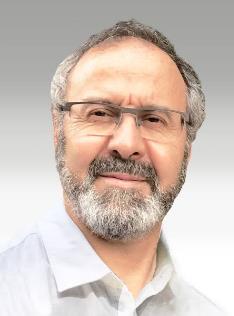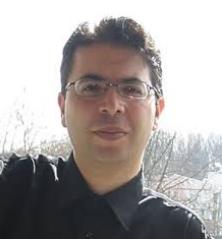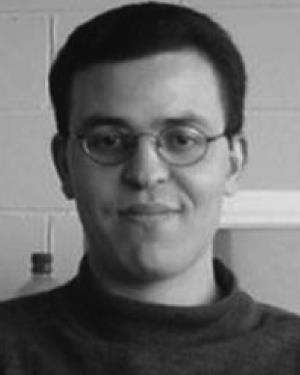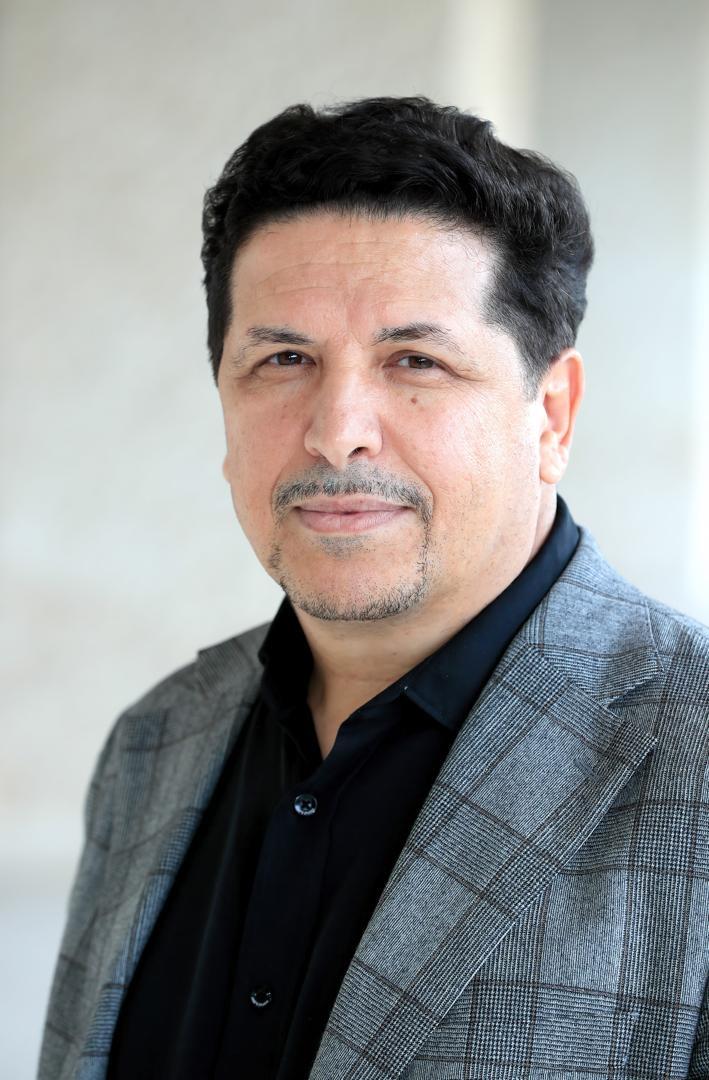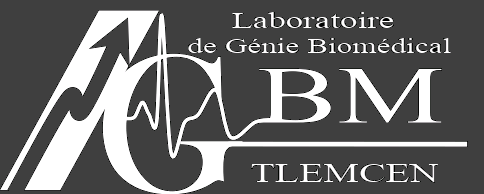Scientific Committee
HADJ SLIMANE Zine Eddine, Chair
Laboratory of Biomedical Engineering, Department of Biomedical Engineering, Faculty of Technology, University of Tlemcen, Algeria
DJEBBARI Abdelghani, co-Chair
Laboratory of Biomedical Engineering, Department of Biomedical Engineering, Faculty of Technology, University of Tlemcen, Algeria
ADEMOGLU Ahmet
Biomedical Engineering Institute, Bogazici University, Turkey
AIMEUR Esma
University of Montreal, Canada
AOUADA Djamila
AOUADA Djamila, University of Luxembourg, Luxembourg
ASSOUS Said
University of Leicester-Mathematic Department., Data Science & Sensor Physics, Loughborough, United Kingdom, UK
BAAKEK Yettou Nour El Houda
Laboratory of Biomedical Engineering, Department of Biomedical Engineering, Faculty of Technology, University of Tlemcen, Algeria
BAKHTI Khadija
School of Informatics, Computing and Cyber Systems (SICCS), North Arizona University, USA
BECHAR Hassane
Laboratory of Biomedical Engineering, Department of Biomedical Engineering, Faculty of Technology, University of Tlemcen, Algeria
BEGHDADI Azeddine
Université Sorbonne Paris Nord, France
BEHADADA Omar
Laboratory of Biomedical Engineering, Department of Biomedical Engineering, Faculty of Technology, University of Tlemcen, Algeria
BELAIDI Asma
Laboratory of Biomedical Engineering, Department of Biomedical Engineering, Faculty of Technology, University of Tlemcen, Algeria
BELAROUCI Sara
Laboratory of Biomedical Engineering, Department of Biomedical Engineering, Faculty of Technology, University of Tlemcen, Algeria
BELOUCHRANI Adel
Ecole Nationale Polytechnique, El Harrach, Algiers, Algeria
BENAZZOUZ Ahlem
University of Sciences and Technology (USTO), Oran
BENAZZOUZ Mourtada
Laboratory of Biomedical Engineering, Department of Biomedical Engineering, Faculty of Technology, University of Tlemcen, Algeria
BENCHAIB Yasmine
Laboratory of Biomedical Engineering, Department of Biomedical Engineering, Faculty of Technology, University of Tlemcen, Algeria
BENOMAR Mohammed Amine
Laboratory of Biomedical Engineering, Department of Biomedical Engineering, Faculty of Technology, University of Tlemcen, Algeria
BENGANA Abdelfatih
Laboratory of Biomedical Engineering, Department of Biomedical Engineering, Faculty of Technology, University of Tlemcen, Algeria
BENGHENIA Hadj Abdelkader
Laboratory of Biomedical Engineering, Department of Biomedical Engineering, Faculty of Technology, University of Tlemcen, Algeria
BENSMAIL Ilham
Laboratory of Biomedical Engineering, Department of Biomedical Engineering, Faculty of Technology, University of Tlemcen, Algeria
BEREKSI REGUIG Mohammed Anes
Laboratory of Biomedical Engineering, Department of Biomedical Engineering, Faculty of Technology, University of Tlemcen, Algeria
BEREKSI-REGUIG Fethi
Laboratory of Biomedical Engineering, Department of Biomedical Engineering, Faculty of Technology, University of Tlemcen, Algeria
BETAOUAF Talib Hicham
Laboratory of Biomedical Engineering, Department of Biomedical Engineering, Faculty of Technology, University of Tlemcen, Algeria
BOUANI Faouzi
Université de Tunis El Manar Ecole Nationale d'Ingénieurs de Tunis, Tunis,Tunisia
BOUKLI HACENE Ismail
Laboratory of Biomedical Engineering, Department of Biomedical Engineering, Faculty of Technology, University of Tlemcen, Algeria
BOURDOUCEN Hadj
Sultan Qaboos University, Oman
CHELALI Fatma Zohra
Université des sciences et de la technologie d'Alger, Houari Boumediène, Algiers, Algeria
CHIKH Mohammed Amine
Laboratory of Biomedical Engineering, Department of Biomedical Engineering, Faculty of Technology, University of Tlemcen, Algeria
CHOUVARDA Ioanna
Lab of Medical Informatics, The Medical School, Aristotle University of Thessaloniki, Greece
DAHMANI Mohammed
Director of the Laboratory of Signal and Images at the University of Science and Technology of Oran, Algérie
DAHNOUN Naim
SCEEM (School of Computer Science, Electrical and Electronic Engineering, and Engineering Maths), University of Bristol, UK
DEBBAL Sidi Mohammed El Amine
Laboratory of Biomedical Engineering, Department of Biomedical Engineering, Faculty of Technology, University of Tlemcen, Algeria
DEBONO Carl James
University of Malta, Malta
DIETERLEN Alain
Université de Haute-Alsace, France
FANJUL-VELEZ Felix
Biomedical Engineering Group, Université de Cantabria, Spain
FEROUI Amel
Laboratory of Biomedical Engineering, Department of Biomedical Engineering, Faculty of Technology, University of Tlemcen, Algeria
HADID Abdenour
University of Oulu, Finland
HADJ AHMED Ismail
Laboratory of Biomedical Engineering, Department of Biomedical Engineering, Faculty of Technology, University of Tlemcen, Algeria
HAMZA CHERIF Lotfi
Laboratory of Biomedical Engineering, Department of Biomedical Engineering, Faculty of Technology, University of Tlemcen, Algeria
HAMZA CHERIF Souad
Laboratory of Biomedical Engineering, Department of Biomedical Engineering, Faculty of Technology, University of Tlemcen, Algeria
KANOUN Olfa
Chemnitz University, Germany
KAZI TANI Lamia Fatiha
Laboratory of Biomedical Engineering, Department of Biomedical Engineering, Faculty of Technology, University of Tlemcen, Algeria
KERAI Salim
Department of Biomedical Engineering, Faculty of Technology, University of Tlemcen, Algeria
KORTI Amel
Laboratory of Biomedical Engineering, Department of Biomedical Engineering, Faculty of Technology, University of Tlemcen, Algeria
KPALMA Kidiyo
INSA, Rennes, France
KURSUN Olcay
Department of Computer Science, College of Sciences, Auburn University at Montgomery, USA
LABDELLI Nassima
Laboratory of Biomedical Engineering, Faculty of Technology, University of Tlemcen
Ecole ESSAT, Tlemcen, Algeria
LAKRIMI M’hamed
Fellow of The UK Institute of Physics, Siemens Healthineers Magnet Resonance Magnet Technology, UK
MA Maode
School of Electrical and Electronic Engineering, Nanyang Technological University, Singapore
MAHMOUDI Said
University of Mons, Belgium
MESSADI Mahammed
Laboratory of Biomedical Engineering, Department of Biomedical Engineering, Faculty of Technology, University of Tlemcen, Algeria
MEZIANI Fadia
Laboratory of Biomedical Engineering, Department of Biomedical Engineering, Faculty of Technology, University of Tlemcen, Algeria
NEDJAR Imane
Laboratory of Biomedical Engineering, Faculty of Technology,
Faculty of Sciences, University of Tlemcen, Algeria
OUSSALAH Mourad
Faculty of Information Technology and Electrical Engineering, University of Oulu, Oulu, Finland
PATTICHIS Constantinos
University of Cyprus, Cyprus
PIURI Vincenzo
Department of Computer Science, Université de Milan, Italy
RERBAL Souhila
Laboratory of Biomedical Engineering, Department of Biomedical Engineering, Faculty of Technology, University of Tlemcen, Algeria
SEGHIER Mohamed
Khalifa University, UAE
SETTOUTI Nesma
ISEN Yncréa Ouest à Brest, LabISEN, LSL Teams, France
TALEB Tariq
Laboratory of Biomedical Engineering, Department of Biomedical Engineering, Faculty of Technology, University of Tlemcen, Algeria
TAOULI Sidi Ahmed
Laboratory of Biomedical Engineering, Department of Biomedical Engineering, Faculty of Technology, University of Tlemcen, Algeria
TAVARES João
Universidade do Porto, Portugal
TRAJKOVIK Vladimir
Faculty of Computer Science and Engineering, University of Skopje, Macedonia
TURUKALO Tatjana Loncar
Faculty of Technical Sciences, University of Novi Sad, Serbia
ZAIDI Habib
Laboratory (PINLab), Geneva University, Department of Radiology & Medical Informatics, Switzerland
ZHU Xin
University of Aizu, Japan


